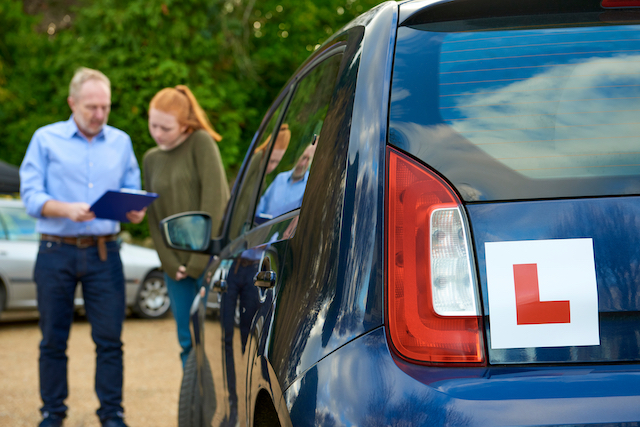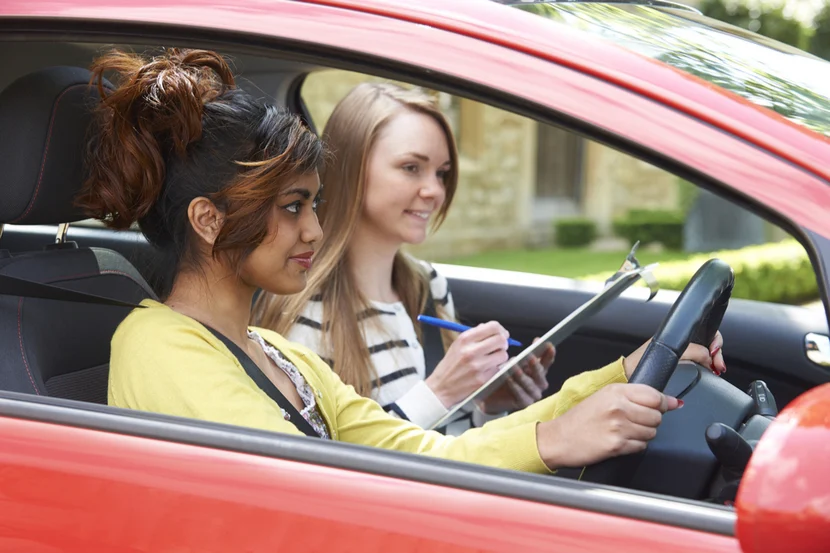How to Prepare for Driving Lessons: A Friendly Guide to Getting Road-Ready
Learning to drive is a big milestone. It means independence, freedom, and the start of a new chapter. Whether you are excited, nervous, or a bit of both, the way you prepare before stepping into the car can make a huge difference in how confident you feel and how quickly you improve.
I have been a driving instructor for a long time, and I see the same thing again and again. Students who prepare well progress faster, feel more relaxed during lessons, and usually pass their test sooner. The good news is you don’t need to be a car expert to get a strong head start. You just need the right mindset, a few practical steps, and the willingness to learn.
Let’s walk through a complete guide that will help you feel ready for that first lesson and every lesson after.
Understand What Your First Lesson Is Really About
Many people imagine they need to show up already knowing how everything works. That is not true at all. Your instructor is trained to teach you from scratch. Your first lesson is about getting comfortable inside the car:
• How to sit correctly
• What each pedal does
• How to adjust your mirrors
• How to set up your driving position
• Basic movement like starting, stopping, and steering
You are not being tested. You are learning. Expect a slow, gentle start. If you understand this ahead of time, you will feel far less nervous when you sit down behind the wheel.
Choose the Right Instructor for You
It matters who teaches you. You want someone who makes you feel supported, not stressed. A good instructor should be:
• Patient
• Calm under pressure
• Able to explain things clearly
• Flexible with lesson times
• Familiar with your local test routes
Do a bit of research. Check reviews. Ask questions. You should feel comfortable as soon as you meet them. If you don’t, try someone else. This is your journey and your money. Get the right support from day one.
Sort Out Your Provisional Licence Early
Before you can take legal driving lessons on the road in the UK, you need a provisional driving licence. Many learners forget this part and end up delaying their start. Apply early. It’s simple and can be done online. Keep that licence safe because your instructor will ask to see it before your first lesson.
Brush Up on the Basics Before You Begin
You don’t need to know everything, but having a small amount of knowledge helps you feel more confident. Here are a few things worth learning:
• What each pedal is called (accelerator, brake, clutch if manual)
• The main car controls like indicators, handbrake, gears
• Road signs you see daily around your area
• How to recognise hazard situations
You can use apps, YouTube videos, and theory test practice tools. Even ten minutes a day can make a big difference. Think of it as preparing your mind for the road.
Start Studying for Your Theory Test Early
A lot of learners wait until they are halfway through lessons before revising for the theory test. That slows down progress later. Study early so the rules of the road become familiar. When you already understand speed limits, right of way, hazard perception, and signs, your brain has more free space to focus on actual driving.
Your theory knowledge becomes your driving confidence.

Wear the Right Clothes and Shoes
You would be surprised how much footwear affects control of the pedals. Avoid shoes that are:
• Thick-soled
• Slippery
• High-heeled
• Loose or bulky
Choose comfortable, flat shoes that allow you to feel the pedals well. Clothing should also allow you to move freely so you can turn easily to check blind spots and mirrors. Comfort helps you focus on learning instead of fidgeting.
Bring the Essentials Every Lesson
Here’s a quick checklist so nothing interrupts your progress:
• Provisional licence
• Glasses or contacts if you need them
• Water bottle
• Your phone on silent so you can focus
• Any notes or progress log your instructor gives you
Showing up prepared shows that you take your learning seriously.
Sleep Well Before Your Lessons
Driving uses more brainpower than you think. You are judging speed, distance, controls, other road users, signals, and instructions all at once. If you are tired, your reactions slow down and anxiety is higher. Try to be well-rested when you get behind the wheel. A fresh mind learns faster.
Tell Your Instructor How You Feel
Some learners arrive nervous but try to hide it. No instructor expects you to feel confident from the start. If your heart is racing or you are worried about a certain manoeuvre, speak up. When you share how you feel, your instructor can:
• Adjust the pace
• Offer reassurance
• Break tasks down smaller
• Pick quiet areas to practise
Driving is not just physical skills. It’s mental confidence too. Being open helps both sides.
Don’t Rush Yourself
Everyone learns differently. Some people get moving quickly. Others take more time to feel safe. Neither is wrong. The goal is not to impress anyone. The goal is to drive safely and pass your test when you are ready.
Be patient with yourself. Celebrate small steps.
Review Each Lesson While It’s Fresh
Once a lesson ends, your brain starts to forget details. Take two minutes to review:
• What went well
• What you need more practice with
• Any questions to ask next time
Learning to drive is a journey. Tracking your progress helps you feel momentum week by week.
Practise Focus and Observation Everywhere You Go
Even as a passenger, you can build real driving skills. Watch how drivers:
• Approach roundabouts
• Handle busy junctions
• Check mirrors when changing lanes
• Maintain safe following distance
Imagine what you would do in each situation. This quiet practice develops awareness long before you drive independently.
Understand That Mistakes Are Normal
You will stall. You might forget a mirror check. You might get confused. That is part of learning. Every driver on the road once made the same mistakes. A mistake means you are trying. Treat errors as stepping stones, not setbacks.
Confidence grows with repetition.
Keep a Positive Mindset
Driving can trigger nerves. It can also give you the biggest confidence boost when you start seeing progress. Remind yourself why you are learning:
• To get to work on your own
• To help your family
• To travel without depending on anyone
• To enjoy your own independence
Hold on to your reason every time you feel unsure. You are learning something that will benefit you for the rest of your life.
Work With Your Instructor, Not Against Them
Sometimes you might think you are ready for bigger challenges and your instructor slows you down. Other times they may push you quicker than you expected. Trust their judgement. Their only goal is to keep you safe and help you pass. Ask questions if something doesn’t make sense. Good communication creates a strong learning team.
Understand That Consistency Wins
Weekly lessons are ideal. Long gaps make it harder to keep momentum and remember what you learned. If life gets busy, even a short session keeps your skills fresh. Regular practice means faster improvement and fewer total lessons in the long run.
Visualise Success
Picture yourself:
• Starting the car smoothly
• Handling roundabouts confidently
• Parking with ease
• Passing your test with a smile
Your brain builds familiarity when you visualise skills. You get more comfortable trying them for real.
Enjoy the Journey
Learning to drive does not have to feel stressful. It can be fun, exciting, and full of small victories. You are learning a new life skill that opens up freedom, new opportunities, and more choices. Take a moment to enjoy the process rather than focusing only on the finish line.
Every time you sit behind the wheel, you get a little better.
Final Thoughts
Preparing for driving lessons isn’t about memorising everything or trying to be perfect. It’s about giving yourself the best chance to learn with confidence. When you choose the right instructor, stay positive, and show up ready to try your best, you will surprise yourself with how quickly things start to click.
You are capable of more than you think. Every great driver once sat behind the wheel for the first time feeling nervous too. Keep going, one lesson at a time, and soon you will look back and realise how far you have come.
Your road to independence is just beginning. You’ve got this.


